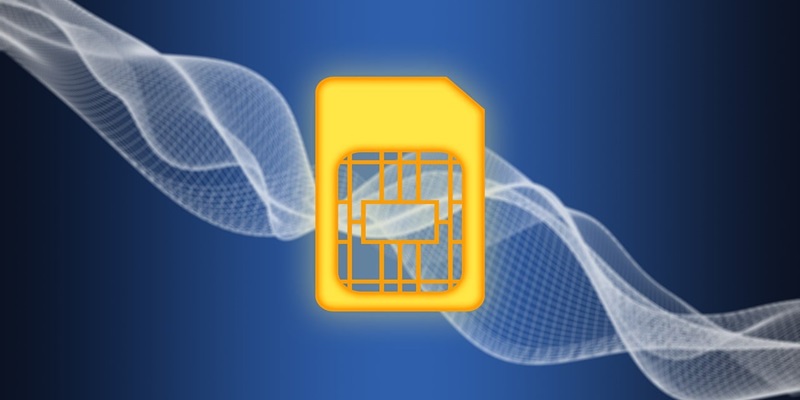In the ever-evolving landscape of technology, eSIMs have emerged as a game-changer, bringing convenience, security, and hassle-free network selection options. As the world becomes increasingly connected, the rapid adoption of embedded SIMs (eSIMs) is on the verge of transforming the cellular IoT landscape in India. With their advantages of operational efficiency, cost reduction, and enhanced security, eSIMs are poised to revolutionize connectivity in the country.
Advantages of eSIMs
eSIM technology offers numerous advantages that make it an attractive option for both consumers and businesses. One of the key benefits is the convenience and hassle-free network selection options it brings. Gone are the days of physically swapping SIM cards to switch between mobile network operators. With eSIMs, users can easily switch networks through a simple digital process, making it incredibly convenient.
Operational efficiency and cost reduction are also significant advantages of eSIMs. Businesses can streamline their operations by remotely managing and provisioning eSIMs, eliminating the need for physical SIM cards. This not only saves time but also reduces costs associated with SIM card management, including distribution and inventory management.
Furthermore, eSIMs offer enhanced security. Since they are remotely programmable, the risk of lost or stolen SIM cards is mitigated. Additionally, eSIMs utilize advanced encryption and authentication mechanisms, making them more secure against unauthorized access or tampering.
The Transformative Potential of eSIMs in Cellular IoT
The adoption of eSIMs is expected to have a transformative impact on the Internet of Things (IoT) landscape. IoT devices require seamless and reliable connectivity, and eSIMs are perfectly suited for this purpose. Leveraging a new industry standard that facilitates remote programming and deployment, eSIMs enable IoT devices to connect to networks without the need for physical SIM cards.
This means that IoT deployments can be easily scaled, and devices can be reprogrammed remotely, reducing operational complexities and costs. The benefits include enhanced operational efficiency, better resource allocation, and increased agility in deploying and managing IoT devices. The power of eSIMs in cellular IoT will revolutionize industries such as healthcare, agriculture, transportation, and smart cities.
Alignment with Digital Transformation in India
eSIM technology aligns perfectly with the goals of Digital Transformation in India, as it offers a more convenient and seamless way to connect and communicate. By eliminating the need for physical SIM cards, eSIMs simplify the process of going online, making connectivity more accessible to all. This enhanced connectivity plays a crucial role in bridging the digital divide and bringing underserved regions into the realm of digital inclusion.
Government Recognition and Policy
Recognizing the importance of eSIMs in enabling connectivity for IoT devices, the Indian government has formulated an IoT policy to foster the growth of IoT in the country. This policy paves the way for the widespread adoption of eSIM technology in India. The government’s recognition reflects the potential of eSIMs in driving connectivity, innovation, and economic growth in the country.
Challenges in eSIM Adoption
While eSIM technology brings immense potential, there are several challenges that need to be addressed for its successful adoption. One of the primary challenges is ensuring compatibility and standardization across different devices and mobile network operators. As eSIMs are integrated into a wide range of devices, it is crucial to establish uniformity and interoperability between devices and networks.
Additionally, since eSIMs are remotely programmable, it is essential to establish robust security measures to prevent unauthorized access or tampering. Proper authentication protocols, encryption mechanisms, and strong security frameworks must be in place to ensure the integrity of eSIM communications.
Collaboration for Mass Adoption
To realize the full potential of eSIM technology in India, collaboration between device manufacturers, mobile network operators, and industry standards organizations is of utmost importance. The seamless integration of eSIM technology requires harmonization and cooperation among stakeholders. By working together, these entities can drive the mass adoption of eSIM technology, making it a ubiquitous standard in the Indian connectivity landscape.
eSIMs bring convenience, security, and operational efficiency to the connectivity landscape in India. With the transformative potential of eSIMs in driving cellular IoT and their alignment with the goals of Digital India, eSIM technology can play a significant role in extending connectivity to underserved regions, bridging the digital divide. The recognition by the Indian government and the formulation of an IoT policy further emphasize the importance of eSIMs in enabling IoT connectivity. However, challenges such as compatibility and security need to be addressed through collaboration among stakeholders. By leveraging the potential of eSIM technology and working together, India can embrace the benefits of this revolutionary technology and enhance its digital transformation journey.

